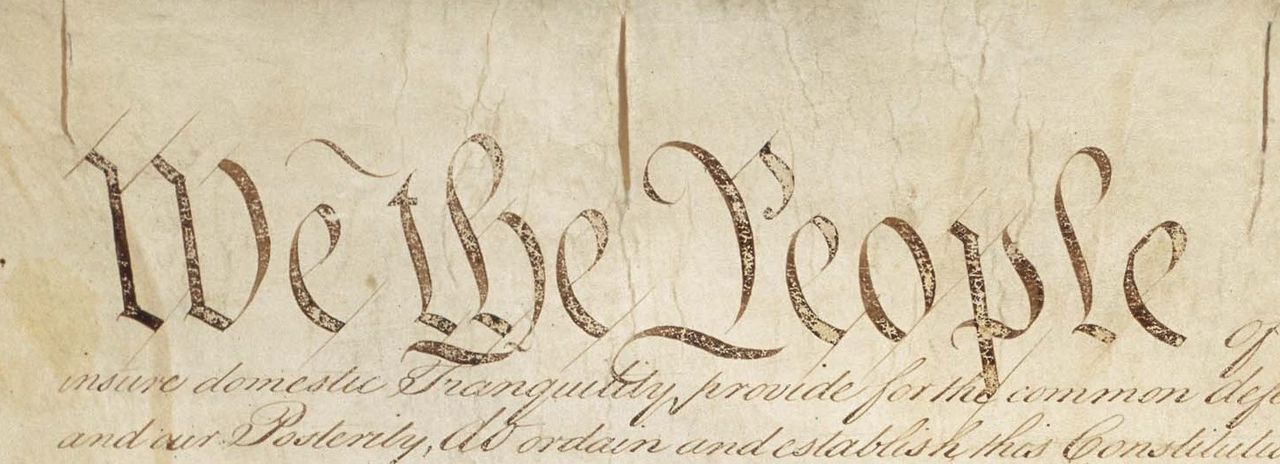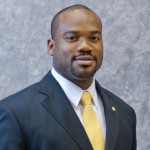State Assembly Pushing For Constitutional Convention
State GOP is pushing the legislature to join others around the country in an attempt to ratify controversial amendments to the U.S. Constitution.
In 2017, the Wisconsin Legislature passed a resolution calling for a constitutional convention of the states for the purpose of amending the U.S. Constitution to require a balanced federal budget. On Tuesday, the Assembly took up a similar — but more expansive–resolution on an Article V Convention. Both supporters and detractors alike cited their respect for the Constitution to bolster their argument.
And that’s where the agreement ended.
“Someone said this is about cleaning up the swamp? No, this is the swamp,” said Rep. Chris Taylor (D-Madison). “You have millionaires and billionaires pushing this on the people. … This could radically alter our federal government, not for the people, but for profit.”
Responding to her on the Assembly floor — and claiming that listening to Taylor makes his head hurt — Speaker Robin Vos (R-Rochester) said her opposition only made his “yes” vote stronger and offered this rebuttal: “The federal government is broken. They are spending us into oblivion. I don’t know how this can be all that controversial unless you are afraid of democracy.”
Taylor — who became a member of the conservative American Legislative Exchange Committee (ALEC) to attend its conferences despite being a staunch progressive — said she first saw an “almost verbatim” draft of this model legislation at an ALEC conference in 2013.
There are two ways to enact federal constitutional amendments. One is that the U.S. House and Senate propose an amendment and it passes with at least a two-thirds vote. If three-fourths — or 38 — of the states ratify it, the Constitution is amended.
The second way to amend the U.S. Constitution is what Wisconsin Republicans are endorsing, which is that two-thirds of the states — or 34 — call on Congress to form a convention of the states to propose amendments. Those amendments would need to be ratified by at least 38 states.
Outside takes
Republican supporters said they hear about this issue regularly, not only at ALEC conferences but also from their constituents. Rep. John Nygren (R-Marinette) said he has had more contacts supporting a constitutional convention than on budget, opioids and water quality — three other issues he works on — combined. Rep. Rick Gundrum (R-Slinger) said he had 161 contacts from constituents on the issue, while only seven have opposed it.
“I always thought of our founding fathers as pretty smart cookies,” said Rep. Shae Sortwell (R-Two Rivers), opining that they added the states’ ability to call for a convention for a reason. “Now our only option is to bypass the corrupt federal government.”
Former Wisconsin Gov. Scott Walker became the national honorary chairman of the Center for State-led National Debt Solutions to push for a convention of the states a year ago, marking a return to public life after losing the race for governor. His group has been pushing for a convention on the more limited scope of balancing the federal budget.
Currently 28 states out of the required 34 states have passed a request for a convention to balance the budget. And 15 states have passed the request for the more expansive convention that the Assembly approved Tuesday. The Convention of States Action group lists another 21 states, including Wisconsin, that are moving in that direction.
In January, Walker and former Arkansas Gov. Mike Huckabee visited Columbia, South Carolina, to lobby the legislature for a constitutional convention on a balanced budget — the previous version Wisconsin has already requested.
“You’ve heard generals, admirals and other military leaders overwhelmingly say the number one threat to national security going forward is the federal debt growing out of control. There are plenty of other concerns across the world. I would say a Democrat lawmaker or voter, you should be just as concerned as a Republican because we get to that death spiral, and suddenly there’s automatic reduction in Social Security, Medicare or Medicaid, so this is an issue that matters to everyone.” Groups in Wisconsin that have spoken out against the measure include the ACLU of Wisconsin, the League of Women Voters and the Wisconsin Democracy Campaign (WDC).
WDC has regularly testified against an Article V convention in both forms the legislature has proposed, labeling the current version even worse.
“This joint resolution is much vaguer and broader, and would open up the door of any Convention of the States even faster and wider for a wholesale rewrite of our founding document, thus jeopardizing our fundamental rights,” testified Matt Rothschild, WDC’s executive director.
He added that WDC is not opposed to amending the constitution — in fact it would favor an amendment stating that “Corporations aren’t persons, and money isn’t speech.” But, he added, “We believe the Constitution should be amended the old-fashioned way,” with two-thirds approval in the House and the Senate, and then three-quarters of the state legislatures approving it. “This is a cleaner, safer way to go about the amendment process,” Rothschild said.
The Center on Budget and Policy Priorities (CBPP) is a staunch national foe of the measure. It warned in a 2017 report that calling any Constitutional Convention — whatever the scope — could likely spin out of control in terms of topics to be addressed.
National groups pushing for a constitutional convention include ALEC, which offers its model legislation for the more expansive convention on its site, along with a handbook for state lawmakers on how to amend the U.S. Constitution with this rationale:
“Americans realize that the nation is on the wrong path and that Congress lacks the political courage to address our challenges. Therefore, the time is right for the states to exert the constitutional authority provided to them by the Constitution’s framers and to propose amendments that could set us on the right path again. For there is far more to fear from state inaction against a dysfunctional and overreaching federal government than there is to fear from states banding together to address some of America’s most pressing problems.”
After the Assembly approved the measure Tuesday on a vote of 60-38 — with Rep. John Macco (R-Ledgeview) not voting and Reps. Amy Loudenbeck (R-Clinton) and David Murphy (R-Greenville) joining all Democrats in voting no — spectators in the legislative gallery burst into applause.
The resolution still needs Senate approval, but it does not need the governor’s approval because it is not a law.
Reprinted with permission of Wisconsin Examiner.























Maybe it is time to face new realities about our country -or, more accurately the three different countries that we have become – and call the Constitutional Convention. A logical – possibly the best – outcome would be the peaceful separation into those three separate countries, or, at least, a new federal system with an extremely weak federal government. For Wisconsin, it would represent the achievement of the permanent Republican rule that – as the “real Americans”/”the American people” – their elected officials and their base feel entitled to, and have long sought. And the final, irreversible rejection of corrosive “liberalism.”
Under provisions of the newly rewritten constitution, Wisconsin – and its sister states – could enact laws that are at the heart of post-modern Republicanism as reflected in the beliefs Walker, Fitzgerald, Vos and their plutocratic and WOW county supporters, along with Republican leaders everywhere else have long espoused. Even while often publicly lying about them. The enacted into law system would include the following:
(1) Acknowledgement of white supremacy in its various forms, possibly including repeal of the 13th, 14th and 15th amendments in the new constitutions.
(2) Complete corporate/plutocratic/ALEC control of state government, as evidenced by totally regressive tax regimes and the gutting of remaining environmental and other health and safety provisions deemed burdensome by corporate Wisconsin and those national entities doing business in the state. And to complete the picture, elimination of any remaining local controls, all guaranteeing that our current world-leading extreme inequality will be permanently entrenched.
(3) “Modernization” of what will be inherited state/new confederacy safety-net programs, all based on stated Republican principles: Social Security as private accounts managed by Wall Street firms; Medicare as a voucher program; Medicaid as a bare-bones state controlled benefit-for-work program; and reductions in every other program, such as SNAP, to encourage work and to stop the undeserving poor from stealing the hard earned tax dollars of those living in the “productive” parts of the state.
(4) Acceleration of the process of transforming the state university system into a corporate training program, with the remaining humanities areas being dedicated to shaping young minds to grasp the evils brought on by political correctness and liberalism.
(5) Local control of any infrastructure improvements, so that “my” hard-earned tax dollars don’t go to fixing things for the undeserving, e.g., those living in the City of Milwaukee, or not on my street.
(6) Criminal justice reforms in the shape of harsh sentences for those living in the surveillance areas and compassion for high-income white collar criminals.
In many ways, this would be a “back to the future” constitutional undertaking, completing the process started by Richard Nixon’s “southern strategy,’ in which Wisconsin and other states look increasingly like the Deep South and the states of our original Confederacy.
Maybe Walker, Johnson, Vos, Fitzgerald and the gang, given their documented records, can explain how this is not the substantive agenda that they would pursue.
Republicans all over this county have corrupted our political process through Gerrymandering, voter suppression, and legislative maneuvers to weaken the powers of elected officials like our Governor and Attorney General. A Constitutional Convention would pave the way for a variety of totalitarian measures which make a permanent, conservative Republican majority in charge while making conservative Christianity the official Government religion. We would also see legislation that would enable the arrests of any journalists who criticized the government and any legislative official who falls out of favor with the Supreme Leader. Just look at Trumps rantings as a framework for this country’s Brave New World after a Constitutional Convention. I doubt that most voters would even know what this current moment is about country to what the quoted politicians in this article are saying.
Nothing in Article V, or anywhere else in the Constitution, authorizes Congress, state legislatures, or anyone else to limit the agenda of an Article V convention. And even if they did, the Supreme Court has stated that the process of amending the Constitution is a “political question” into which the courts would not intervene. Once the delegates convene, they are answerable only to themselves. The product that emerges from an Article V convention could be radically different from what those asking it to be called may have envisioned.
As we careen from one partisan confrontation to another, it might surprise many people to learn that some people actually think that this is a good time to open up our fundamental law. But yes, several groups on both the Left and the Right are busily working to persuade states to pass resolutions asking Congress to call a convention under Article V of the Constitution. Much of the opposition to calling an Article V convention results from the danger that such a convention could veer in dangerous and unpredictable directions, especially in this toxic political atmosphere. Nothing these groups propose does anything even to mitigate the risks that a convention would bring. State legislatures should not delude themselves that the dangers of an Article V convention can somehow be contained. Once selected, delegates to an Article V convention become federal officials with authority derived from Article V, not from the states. Once the delegates convene, they are answerable only to themselves.
Calling an Article V convention is reckless, especially at this divisive moment in our nation’s political history.